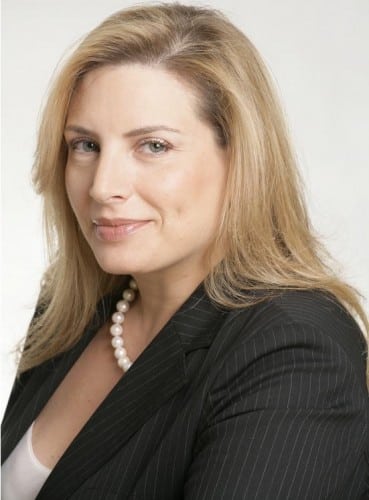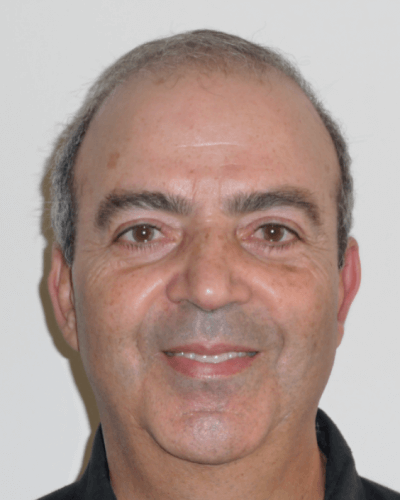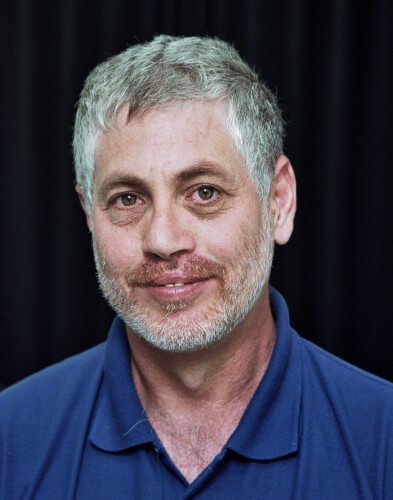The directors of the 2014 Nano-Tech Conference, representing the combination of academia/government/industry, look back with satisfaction and are full of optimism about what is going to happen in the future in one of the hottest areas of Israeli research and industry

By: Nahum Donitza and Limor Hirschfeld
Nano technology. How much magic and promise there is in this field, one of the most sought-after fields of research and industry in the world today and a highly influential engine of economic growth. The academy develops the groundbreaking research and the industry translates the research into applications in the field - which touch almost every field of our lives - medicine, security, clothing, environmental quality, electronics and more. In this field as well, Israel enjoys global success and is considered a powerhouse that issues groundbreaking research in the many fields of nanotechnology. A success that illustrates more than anything the power of human capital existing in Israel that even with relatively low funding manages to flourish.
And some numbers: 300 million dollars have been invested in total from government sources and universities in the last nine years in the Israeli nanotechnology industry, resulting in impressive results: according to the data of the National Committee for Nanotechnology - INNI, in the six years that have passed since nanotechnology was declared a national priority project, 206 ″Success stories in the form of new start-up companies. 860 patents were submitted for registration by the end of 2012, of which 270 were approved and 830 collaborations were carried out between the Israeli Academy of Industry (local and foreign)..
In these years, the field also recorded significant academic achievements: 101 world-renowned scientists immigrated to Israel and were accepted as university faculty members, the number of junior scientists in the field (including post-doctorates) is 220, the number of doctoral students is approximately 750, and the number of master's degree students is approximately 850 people. Over 7500 scientific articles were published in the six years, and about 1500 of them resulted from inter-university collaboration. There has also been great success in the applied-technological field: there are 120 nano companies currently registered in INNI, operating in diverse fields and utilizing the unique features of nanotechnology to improve their existing products and enter new fields. There are about 15-20 relatively large companies operating in the field, such as Elbit, Rafael, Pelsan, TAA, Applied Materials, Intel, Vulcan, Keter and Israel Chemicals, which focus part of their activity on the nano field.

The other companies, medium and small (start-up companies) demonstrate unique capabilities in the field of nanotechnology and promote groundbreaking applications in the fields of technology they have developed or acquired. This part should grow in the coming years due to nano technologies that have reached maturity and are looking for industrial applications.
According to Dan Wilensky, a member of INNI and a veteran and respected high-tech person, although in Israel the scope of the industry is still minimal and estimated at a few million, the scope of the global industry is expected to reach over a trillion dollars of nano-based products and services within five years. "From our annual survey it appears that Israel will be an important player in the development of products with high added value that will be integrated into leading global industries and part of this will be produced in Israel on the basis of the information and technology developed here, mainly by the research institutions that are among the world's leaders in the field of research and development. We are on the right path to make Israel a leading nanotechnology powerhouse."
In 2005, it was decided to establish the nano field in Israel as a national priority project whose task is to establish the research and physical infrastructure in 6 universities where the research will be carried out on which the industry based on nanotechnology in Israel will be based. The first national program ended at the end of 2011. In light of its great success, the managers of the program decided to hold a second 5-year national program in the years 2012-2016.
Coming from all over the world to the fourth international nano conference, over a thousand participants are expected to arrive this year, including companies, venture capitalists, private funds, institutional and corporate investors, government decision makers, who will focus on the innovations and news that the nano field has to offer. In honor of the International Nano Conference, we convened the three chairmen of the conference who represent the combination between academia - government - industry: Professor Uri Sivan, one of the founders of the Russell Berry Institute for Nanotechnology at the Technion and a professor in the Faculty of Physics; Rafi Koriat, one of the most senior industrialists in Israel and responsible for commercial and academic collaborations at the National Committee for Nanotechnology (INNI) and Nava Seversky-Sofer, an international consultant in the field of technology commercialization and a founding partner of the International Forum for Technology Commercialization.
How much has the nano world changed in the last two years, since the last conference?
Prof. Sion: "The fourth conference in the number demonstrates the great importance given to the subject in both academia and industry. In addition, the conference illustrates Israel's position in the world in terms of the list of international lecturers that will arrive. The conference demonstrates the maturity the field has reached. 10 years since the establishment of the first center at the Technion and since then centers have been established all over the country. A field that encompasses several hundred researchers in academia and industry with a large number of students."
Seversky-Super: "We are starting to see more products on the market, things that once seemed like science fiction are now reality. Following the success of the concept at the previous conference, again this year we will present technological models - which make scientific ideas accessible and make them tangible, scientific breakthroughs that can be used to make our lives better and more comfortable. In the first six years, the program helped the research centers to position themselves as leaders in their field in the world, and now they need to move to strengthening the parameters of commercialization: creating patents and commercializing patents."
Following the many Nobel Prizes won by Israelis in the fields of science, in the face of claims that young Israelis no longer go to science studies, what is the situation in the field of nanotechnology?
Prof. Sion: "Normally, you come to nanotechnology as part of advanced degrees, and the students vote with their feet. The fields of research related to nanoscience and nanotechnology ignite the imagination of the students and attract excellent students from a very wide range of engineering and scientific disciplines.
Within science and engineering studies, the field is considered active and innovative, and most institutions have curricula that provide a structured and multidisciplinary education.

Koriat: "We are trying to integrate studies related to nanotechnology already in high schools. For example, the European Tempos program in which Israel participates as a partner in preparing a curriculum for universities and which will be of great help to teachers on how to teach nanotechnology to high school students, will allow early exposure to students. You have to remember that the main basis is always curiosity. Curiosity starts at a very young age. It is impossible to approach a boy or girl at the age of 17-18 and offer them to enter a field that is completely unfamiliar to them. Beyond that there is also the focus on details, which is of course an integral part of scientific research. We are in a world where everything is 'now and fast', and there is also a tendency to explore things laterally instead of in depth. If we do not assimilate the scientific way of thinking from a young age, things will not happen by themselves... To help the process, at the upcoming conference 200 outstanding students will be invited to enter the conference for free. Students majoring in different sciences are from a wide sample and representation of the high school population including the periphery and the Arab schools, and they will be exposed to all the lectures and content at the conference.
Our goal is to allow the younger generation early exposure to an innovative and fascinating field and to attract the best who will become the future generation of scientists in the field of nanotechnology." Seversky-Sofer: "One of the goals of the national program was to return leading scientists to centers in Israel and as we saw in the INNI data, over 100 scientists were reabsorbed into the nano institutes in Israel, instead of the 12 that were planned to be returned.
It is interesting to note that precisely in the nano field there are many young researchers... In general, I think that the basis should already be found in the curricula of elementary education. It is important to excite children and explain to them that science is everything that happens around us: cooking, and roller coasters and all kinds of cool inventions that we read about in the newspapers. There are programs for excellence and the advancement of science, the ORT network has very nice programs in the nano field, and there are national programs. I hope that the students who come to the upcoming nano conference for the first time, will enjoy, be enthusiastic and leave with something that will make them stay in the fields of science and innovation." Prof. Sion: "The Israeli national program is a tremendous success and not in very large amounts. A community was created with close ties within the institutions themselves and between the institutions and fences were broken that separated different disciplines such as the life sciences, the physical sciences and engineering. The practice of nanotechnology has strengthened the relationship between industry and academia as reflected in the unique combination of the two at the Nano-Israel conference."
Is the Asian market still the most developing? How do Europe and America not close the gap? And where does Israel stand in the world?
Koriat: "Israel puts in a relatively large amount of money, but compared to the rest of the world it is very little. Less than a tenth of what is invested in advanced countries. And despite this, Israel is screwing up at a high level thanks to human ability. As for the Asian market, it is still the most developed in terms of application because there is no fear of regulation and there is openness on the nano issue. The Chinese and Indian markets are also developing. The nano is a strategic field - an important and powerful growth engine."
Seversky writes: "China and India alone are over a third of the world's population. These are huge markets, which are several times the size of the US markets. Even if today the technologically and educationally elite part is a smaller percentage, the numbers are still large and the percentage is also increasing. Countries whose development is accelerating, and decided at the governmental level to advance and specialize in the fields of science and technology. Nanotechnology, which is seen as a young science, only benefits from this situation. It receives investment and push forward and shows results within 15 years and not many decades. There is a look to the east both at the scientific level and at the level of business collaborations with very high level parties."
Koriat: "There is great research, but we would like to speed up the implementation - how to turn research into industry. Israel is strong in this multi-discipline. It is important to note that the Chinese and Indians have a huge appreciation for the Israelis, they come here and it is relatively easy to establish relations with them for mutual leverage." Do the recent decisions of European bodies to boycott Israel, and with it damage to research grants to Israel, affect the Israeli nano world? Koriat: "The European market is the most important for Israel; Mainly Germany, France and Spain (the Basque part) - there are always delegations. If there is damage to European funding, the Israeli nano will also be damaged." Seversky-Sofer: "The cessation of European funding will be fatal, not only in the field of nanotechnology. The European Union is the number one source of funding for academic research in Israel. If we are not in the European Union, it will be harmed in terms of cooperation and mutual fertilization, not only from an economic point of view."
What is the trend that you can put your finger on as a trend that will lead nanotechnology in the near future?
Seversky-Super: "Nano medicine - because everyone wants drugs to be delivered in a targeted manner to the 'right place' in the body with better effectiveness, use of new and more effective materials. The uniqueness of nanotechnology is the use of bottom up - instead of checking from the outside to the particle inside, in nano you can build from the small particle up." Koriat: "Definitely agree. Israel is positioned on the international level. Delegations come from all over the world. Academia is breaking ground, followed by industry that tries to apply the research. At the moment the applications are relatively simple, upgrading existing products; For example: upgrading uniforms to lighter, anti-bacterial ones, etc. In medicine, for example, nanomedicine has gained significant momentum. I think we are going to see many spare parts for the human body built with nano technologies. Substitutes, organs, medical solutions".
Prof. Sion: "Current uses in the construction of miniaturized electronics and optics will continue to develop. One of the interesting questions is the competition between silicon technology, which already uses nanometer devices today, and less developed technologies that rely on other materials whose built-in properties are superior but whose ability to integrate into complex circuits is lacking. It is possible that solutions will be found in a combination of the two, and it is possible that a breakthrough in self-construction (the spontaneous connection of nanometer building blocks to create complex structures) will lead to new production methods in the future.
There is no doubt that the contribution of nanotechnology to medicine and research in the life sciences will continue to provide inspiring innovations in the routing of drugs to specific sites and their controlled release, in tissue engineering, in diagnostics, and in the development of personalized medicine. From a historical point of view, the different eras were always associated with new materials that opened up new possibilities. The current era, for example, relies on silicon and it is difficult to imagine the revolution we are experiencing without it. Until now, the various properties have been provided by different materials, but the ability to process and control the geometry of the material in nanometer dimensions allows the planning of its properties based on its shape and size and not only its chemical composition. Gold, for example, known as an inert substance becomes an active substance in nanometer dimensions and today is combined in encouraging chemical reactions. The nanoscale aspects of materials science will therefore continue to provide materials with superior and more environmentally friendly properties. Many aspects of our lives are already affected by nanotechnology today and these will continue and expand. One of the interesting questions is to what extent we will learn to use that self-construction that I mentioned earlier. This ability, which nature uses, will open up far-reaching possibilities."
Koriat: "In the field of nanotechnology, we are trying to learn from past experience, where Israel had an advantage in the field of microelectronics and we failed to fully utilize this advantage. In nanotechnology, at the same time as the acceleration of academic research, we are working with determination for breakthrough applications originating in academia and at the same time exposing the younger generation to the field already now, so that it will be a magnet and a driving force for accelerating the leadership in the field of nanotechnology, which is an important, strategic and economic field."

One response
The nano technology also brings with it dangers, it is very difficult to monitor these particles and they may penetrate through tissues and accumulate inside them.